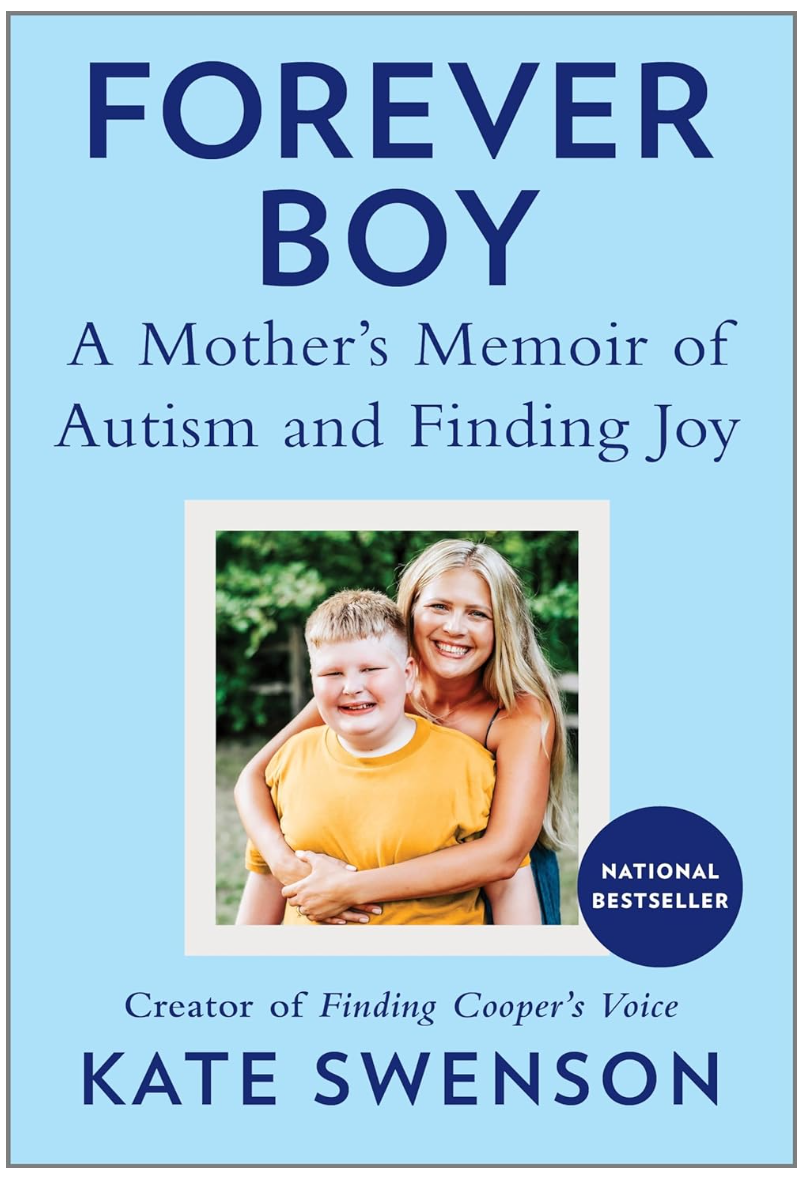I’m Afraid your Daughter will Endanger Us

I absolutely loved my oldest daughter’s kindergarten teacher – I really felt like we were partners in helping my daughter. But, not a day went by that I didn’t get a note, an email, or in the worst case scenario, a phone call.
I will never forget the day she told me she was worried my daughter would endanger her class.
When Olivia was in pre-K, her teachers seemed to be setting the stage for an ADD diagnosis. But she was only three, and then only four, and besides, she was the youngest in her class.
She just made the birthday cut off by a couple of days. She could read at three! It didn’t seem right to hold her back just because she was young. But we were constantly getting calls.
Olivia won’t sit still for circle time. Olivia doesn’t follow directions. Olivia is “defiant.”
I was beside myself.

I had been one of those people who knew exactly what I needed to do to raise my child correctly and I was going to avoid all of these mistakes I’d seen other people make with their kids. Except, nothing worked the way it was supposed to with Olivia.
I loved her so much, and I felt that I was failing her. She was so smart. Why couldn’t she just listen?
If you gave her three step directions, she’d do the first thing you told her, completely forget about the rest, and wander off. I didn’t think she was being “bad on purpose,” but I didn’t know what to do.
Her doctor, who I also loved, told me he thought the school had unrealistic expectations for preschoolers and advised a wait-and-see approach. He believed ADD/ADHD was over-diagnosed. He wasn’t dismissive, but he didn’t want to rush anything.
Then, kindergarten came and it was the year of the Sandy Hook shooting. By the time that incident occurred, I had been in contact with her teacher on a daily basis about her inability to listen, to focus, to follow directions.
She could do the work, and was above grade level, but she would get bored, or distracted, or only want to draw or read instead of whatever they were working on.
Her defiance wasn’t in the form of bad behavior. She didn’t act out, wasn’t hyper, breaking things, hitting people, or having tantrums. She would just refuse or ignore.
Shortly after Sandy Hook, her teacher begged me to find a way to get her to listen. She said she was afraid Olivia wouldn’t be quiet or sit still or follow directions in the event of an active shooter and that she would draw attention (to both herself and the other kids) instead of hiding and being quiet.
It’s been seven years since that phone call and I think about it every day.

We tried a lot of things that year. Behavior charts. Rewards. Consequences (no reward if not earned). Lots of activity. By the end of the year, she’d been suspended from the bus once (for not staying in her seat) and then had to wear a harness the rest of the year.
First, second, third, and fourth grade came and went. She could stay in her seat now, but often wouldn’t finish her work or would forget to turn it in.
Homework brought me to tears nightly because it would take us two hours to get through five problems. She could do them if she could just focus. But she couldn’t.
We had to redirect her every few seconds to what she was doing. And she could not memorize things. Math was a huge struggle because she could not memorize the multiplication tables (and still has not been able to). But, she could read college level literary materials in third grade and tell you every Pokémon that ever existed. It was so frustrating.
I was called into parent teacher conferences constantly. I was never upset with Olivia – only with myself. Why couldn’t I help her?
Fifth grade was our breaking point. She moved up to the intermediate school. Those teachers were not as accommodating or helpful as the elementary teachers. No one would remind her to turn in her work. No one contacted me.
I spent the first quarter thinking things must be going great until I got the parent-teacher conference call and found out she was actually failing some classes. I had so many meetings with the school, they probably had me on speed dial.
I finally begged our pediatrician to do something, anything, to help my child and also appease the school system. We did an evaluation. Saw a neuropsychologist. She was diagnosed with ADD and a processing delay. We put her on medication. It helped, but it wasn’t a miracle.
My breaking point actually came at a parent teacher conference. Olivia was with me, because we were supposed to be talking about ways to help her succeed and I felt she should have some input into what she thought would be most helpful for her.
They did not say one nice thing about her at that meeting. Not about her strong reading skills, her improvements, nothing. Halfway through the meeting, I looked over and saw her crying. I just lost it. I told them that if they wanted to judge a fish by its ability to climb a tree, of course they would never see success. I questioned them as to whether they were in the right profession if they could exhibit so little compassion for children.
In the end, we went the route of a 504 plan and brought the neuropsychologist who tested her (and found her to be gifted, incidentally) with us to the implementation meeting.
The 504 plan meeting was the single most frustrating event of my life to date (and I was a trial attorney at the time!). We spent two hours talking about every difficulty Olivia had and every step we’d taken to work with her (planners, timers, rewards, etc.).
At the very end, they asked me to rate her on a scale of 1 to 5. I, stupidly, rated her based on the improvements she’d made with what we’d been able to get the teachers to implement voluntarily and then they said she didn’t qualify, just because of the number I’d picked!
After we’d spent the entire meeting writing up the plan! I lit into them with a fiery passion. The whole reason we were at this point in the first place was because they spent the entire year telling us how much her “issues” were impacting her at school.
It was clear to me then they just wanted us to magically medicate the problem away and they didn’t want to do any actual work. We had the neuropsychologist with us and my husband was there, but my mama bear instincts just took over. We left that meeting with a 504 plan in place.
She was allowed to use a calculator, was given extra test taking time, and was to be prompted to turn in her work, among some other things.
This school also constantly gave “dress code violations” to her for leggings. Even with long shirts (and didn’t seem to enforce it against other children). But Olivia couldn’t deal with jeans. They made her uncomfortable and distracted her. She had some kind of sensory issue.
I went to the school board. I made public records requests. I basically made myself a pain in the ass until they changed the dress code. I felt like every day was a fight, which is sad. We should’ve been on the same team.
P.S. Leggings have been allowed district-wide for three years now and the world hasn’t ended. My youngest child is uber popular because her mom made leggings ok (LOL) and she lets everyone know that.
After this, they recorded every meeting they called me in to. I think they were afraid I was going to sue the district.

I’d like to say that fifth and sixth grade went better because of the 504, but every day was a struggle. We ended up having to take Olivia off of the medication because she lost a dangerous amount of weight. Things really turned around for her this year, though.
She is in the intermediate school now (7th grade) and her teachers seem to really have her best interest at heart. She is doing well grade-wise. But it’s pretty clear at this point that this is not something she will “grow out of.” We will be dealing with this forever.
Just today, I gave her a three step instruction. She was to take something from me, put it in the kitchen, let the dog out, and bring me something back from the kitchen.
She took what I handed her, walked into the kitchen, and ten minutes later I found her standing at the island, leaning on her elbow and staring off into space. When I prompted her, she had totally forgotten what she was supposed to be doing. She was thinking about an art project.
We just laughed and then she let the dog out. It’s just part of who she is. She still struggles. We find ways to make success possible for her. But we don’t struggle with acceptance anymore. And I no longer worry that she will be somehow held responsible for attracting the attention of an active shooter.
I have other worries now – when she starts driving, when she’s on her own and has to remember she’s cooking something, etc. We have time to work on those things.
I just hope we can make it through the rest of school with teachers who are on “Team Olivia” instead of on an opposing team. Ideally, we would be able to just work with our children’s teachers. That has been my experience for all but two of her years in school. But, sometimes, you just have to fight through it.
During those times, don’t be afraid to be “that mom.”

This piece was shared anonymously with Finding Cooper’s Voice.
Interested in writing for Finding Cooper’s Voice? LEARN MORE
Finding Cooper’s Voice is a safe, humorous, caring and honest place where you can celebrate the unique challenges of parenting a special needs child. Because you’re never alone in the struggles you face. And once you find your people, your allies, your village….all the challenges and struggles will seem just a little bit easier. Welcome to our journey. You can also follow us on Facebook, subscribe for exclusive videos, and subscribe to our newsletter.

